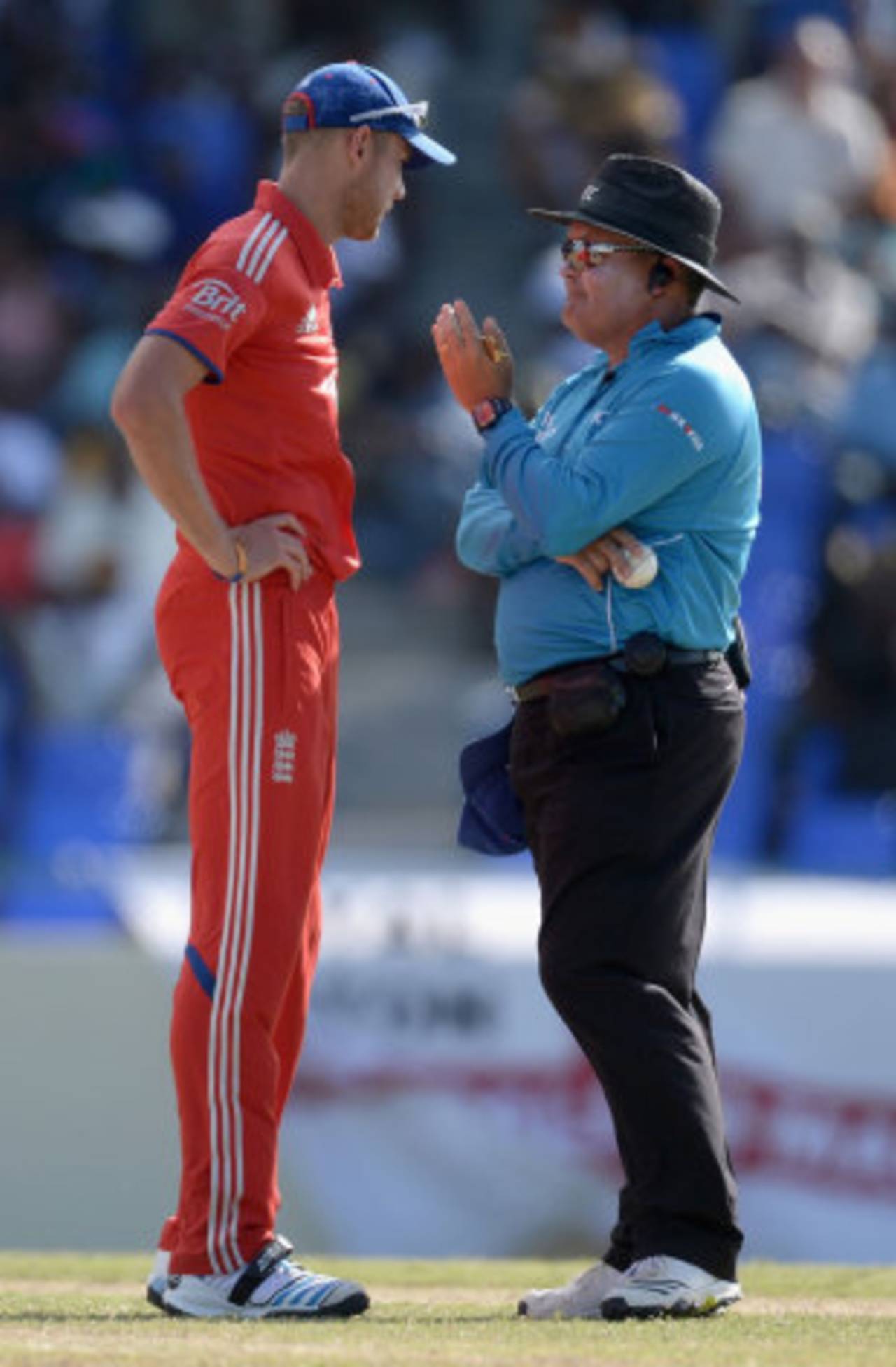Ball change leaves England under cloud
A cloud of suspicion hung over the England team after umpire Marais Erasmus changed the ball due to "unnatural deterioration" during the West Indies innings in the third ODI
George Dobell in Antigua
Mar 5, 2014, 11:44 PM

Stuart Broad and Marais Erasmus exchanged words about the condition of one of the balls • Getty Images
A cloud of suspicion hung over the England team after umpire Marais Erasmus changed the ball due to "unnatural deterioration" during the West Indies innings in the third ODI.
Erasmus, clearly suspecting that the wear to the ball was due to factors beyond those expected when it is used on an abrasive pitch or hit to the boundary, exchanged strong words with the England captain, Stuart Broad, in the 35th over but did not identify any specific culprit.
The match referee, Andy Pycroft, confirmed to ESPNcricinfo that the ball had been changed on the basis of playing regulation 42.1.2 - which comes under 'Fair and unfair play' - and that, as captain, Broad had been issued with a first and final warning that any further occurrence in the series would result in a five-run penalty and the reporting of Broad, as captain, to the ICC. As the series has now ended, that threat of penalty has disappeared.
While the England camp denied any warning had been issued, rule 42.1.2 b) states that, when the ball is changed in such circumstances: "The bowler's end umpire shall issue the captain with a first and final warning."
The decision infuriated Broad. He insisted any wear had been caused simply by England bowling cross-seam deliveries and complained that the replacement ball was newer and harder than the original one, thereby proving easier for the batsmen to hit boundaries.
"I'm very confused as to why it was changed," Broad said afterwards. "And I made my confusion well known. It's not like the ball was reversing for us and they gave us a ball that was [only] 10 overs old. You saw Denesh Ramden got hold of it much better. The softness of the original ball made it difficult to hit and they gave us a brand new ball that was easier to hit.
"Yes, the umpire said the ball had been changed for that reason and, after I bowled three cross-seam deliveries with the new ball, the same wear was arriving on that ball. So I said 'Take a picture of that ball as well'.
"I just saw no logic to it at all and I made my feelings pretty clear, as politely as I could without risking too heavy a fine. The ball at the other end was in a worse nick than the one that was changed. I'm baffled by it.
"I don't think they're suggesting we tampered with it. They are just saying it was unnatural wear which may just be that the wicket was ripping the ball up more than expected."
Ramdin, whose 128 carried West Indies to within sight of an unexpected victory, also confirmed that the newer ball had been "a bit harder and came off the bat a bit better".
It is not the first time in recent memory that England have had the ball changed. Most notably, umpire Aleem Dar changed the ball during the Champions Trophy defeat against Sri Lanka, although on that occasion there was no warning and no public mention of "unnatural deterioration". But, despite a plethora of photographers and television cameras at all international fixtures, no evidence exists to suggest England have been guilty of ball tampering.
George Dobell is a senior correspondent at ESPNcricinfo